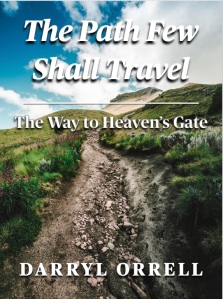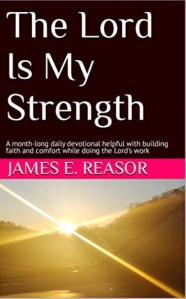
SUNDAY EDITION
“For You created my innermost parts; You wove me in my mother’s womb. I will give thanks to You, because I am awesomely and wonderfully made; Wonderful are Your works, And my soul knows it very well.”
~ Psalm 139:13-14
The number of abortions that have taken place in the U.S. is breathtaking. An abortion is the forced termination of a pregnancy, which results in an embryo or a fetus’s death (“Abortion”). The history of the Second World War records that the Nazi regime and its allies executed some six million Jews throughout the six-year war. As shocking as that number is to the mind, it pales compared to the more than eight million abortions performed in the U.S. from 1987 to 1992. More than 32 million abortions have occurred in the U.S. since the Centers for Disease Control began collecting data (cdc.org).
Those totals fall short of the actual number of abortions because reporting of data is voluntary on the part of each state. More than four decades after the landmark decision to legalize abortion by the U.S. Supreme Court, the topic remains a widely debated and heated issue (Roe). The two sides fueling the controversial issue of abortion are pro-choice and pro-life. This article looks at one of the more prominent issues between the pro-choice and pro-life movements and attempts to answer the central question of when life begins.

The pro-choice movement holds that women should have the option of choosing an abortion up to the point of fetal viability or, in other words, until the child is born. The U.S. Supreme Court’s Roe v. Wade decision guarantees this right by stating: [Before viability] the attending physician, in consultation with his patient, is free to determine, without regulation by the State, that, in his medical judgment, the patient’s pregnancy should be terminated. If that decision is reached, the determination may be effectuated by an abortion free of interference by the State. (Roe)
Pro-choice groups uphold no scientific consensus on when human life begins and that an embryo is not yet life, but rather a potential life. That supports the view that seeds are not living beings but only a living cluster of cells with a potential for life; therefore, its termination is not a homicidal act. The great thinker Aristotle shared this same conclusion noting that an embryo is “the form or act of an organic, physical body that has life potentially” (Amerini 34). The pro-choice advocates hold to a secular humanism and relativism worldview. The view centers on distinct human interests and ideals that exclude God. That, of course, limits itself to the nature of the mind and human understanding (Weerstra 5-6).

The pro-life movement asserts that human life begins at the time of conception and that abortion is an act of homicide. The personhood initiative within the pro-life movement has gained increased momentum nationwide. It seeks to have states define a constitutionally protected person as a human being at any stage of development. That aligns with a comment given by Justice Blackmun in delivering the court’s opinion in Roe.
The appellee and certain amici argue that the fetus is a “person” within the language and meaning of the Fourteenth Amendment. In support of this, they outline at length and in detail the well-known facts of fetal development. If this suggestion of personhood is established, the appellant’s case, of course, collapses, for the fetus’s right to life would then be guaranteed expressly by the Amendment. (Roe)
Therefore, the notion behind the personhood movement targets abortion at the state level. The premise is that any state granting protected rights to embryos and fetuses can refuse abortion services in favor of the embryo or fetus’s right to life. That would be in keeping with the Fourteenth Amendment noted in Roe (Will 578). The dividing line between pro-choice and pro-life advocates centers on whether an embryo or fetus is or is not a person. For the most part, people tend to identify pro-choice as a secular worldview and pro-life as a Christian worldview. However, several religious denominations align with the pro-choice movement, which clouds the biblical worldview on abortion. What is the biblical worldview?

To understand at what point life begins, we must refer back to the origin of man in scripture because “As God’s people, we need to operate in true biblical faith that is much more than theoretical beliefs” (Weerstra 51). The Bible teaches that God “formed man of the dust from the ground, and breathed into his nostrils the breath of life, and man became a living soul (Gen. 2:7). Once God breathed life into Adam, he set into motion the action of perpetual life through the bearing of offspring. An example of this motion is seen in the rapid expansion of the universe which scientists have traced back to a single point known as “The Big Bang” theory.
In like fashion, life continues to expand and move forward because of God’s initial motion with the breath of life. Nowhere else in the bible does God breathe life into another human being, and that is because the breath of life is perpetual. When he became an embryo inside Mary, he did not cease being God and reduced himself to potential life. He was God at conception through resurrection—he was and is God! Likewise, when a man and woman come together to pass the gift of life to another, that embryo, at conception, holds the breath of life put in motion by the breath of God and is a human life.
Now that we have established the breath of life is perpetual and that an embryo is a human life, how does this address abortion? Again, refer back to scripture in the book of Exodus, where God spoke his Ten Commandments to Moses. God said as his sixth commandment, “You shall not murder” (Exod. 20:13). The Hebrew word for murder or kill is raw-tsakh, and it is a verb meaning to slay, kill, or otherwise take a life (Baker 1973). It is noteworthy to point out that the first four commandments speak to man’s relationship with God.
The remaining six speak to man’s relationship with one another. God commands that we are not to kill one another as a deliberate act based on anger, jealousy, and so on. For example, the mindset of Cain as he rose against his brother Abel out of rage and killed him (Gen. 4:8). Another example is King David when he premeditates the death of Uriah because he longed for the man’s wife, Bathsheba, to be his own (2 Sam. 11:15). Jesus summarizes each of the Ten Commandments in his answer to a Pharisee who asked which commandments are the greatest. Jesus replied:
You shall love the Lord your God with all your heart, and with all your soul, and with all your mind. That is the great and foremost commandment. The second is like it, and you shall love your neighbor as yourself. On these two commandments depend on the whole Law and the Prophets. (Matt. 22:37-40)

If we love God with all our heart, soul, and mind, loving our neighbor as we love ourselves is a natural byproduct. By loving our neighbor as God loves, be it one is born in the world or gestation, the act of premeditated murder is inconceivable.
God will honor the free will he has given to all women to choose for themselves the path they wish to travel regarding abortion, even if it opposes His. The secular mind views abortion as a woman’s right to determine what is best for her and her health regardless of the implications to the unborn and is void of God. The biblical mind views life as a gift put in motion by the breath of God. It views abortion as a deliberate act that takes life and stands in violation of God’s spoken and written word.
The issue of abortion will likely remain a strong dividing force among the nation’s people and might well do so until the coming of the Lord. As Christians, our job is simple, we must get out and proclaim the gospel to all that will hear and make disciples teaching them the biblical worldview.
References:
Amerini, Fabrizio. Aquinas On The Beginning And End Of Human Life. Cambridge, Mass: Harvard University Press, 2013. eBook Academic Collection (EBSCOhost). Web. 20 Feb. 2016.
Baker, Warren., ed. Strong’s Complete Word Study Concordance: Expanded Edition. Chattanooga: AMG Publishers, 2004. Print.
Cdc.gov. Center for Disease Control, 2016. Web. 18 February 2016
Weerstra, Hans M., “Christian Worldview Development.” Regent.blackboard.com International Journal Of Frontier Missions. 1997. Web. 15 Feb. 2016
Merriam-Webster. Merriam-Webster Collegiate Dictionary. Ed. Frederick C. Mish. 11th. Springfield: Merriam-Webster, 2006. Book.
Roe v. Wade. No. 113. Supreme Ct. of the US. 1973.
Will, Jonathan F. “Beyond Abortion: Why The Personhood Movement Implicates Reproductive Choice.” American Journal Of Law & Medicine 39.4 (2013): 573-616 44p. CINAHL Complete. Web. 20 Feb. 2016.
Please share this today.
Unless otherwise noted, all Scripture is taken from the New American Standard Bible®, Copyright © 1960, 1962, 1963, 1968, 1971, 1972, 1973, 1975, 1977, 1995 by The Lockman Foundation. Used by permission.
© 2021-2024
A Faithful Sower Publishing
Limited Liability Company
All Rights Reserved




Leave a comment